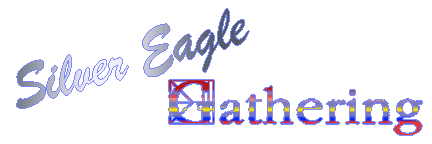

 |
 |
 |
||
 |
||
|
One day, Beeargah the hawk, mother of Ouyan the curlew, said to her son; "Ouyan, go out, take your spears and kill an emu. The women and I are hungry. You are a man, go out and kill, that we may eat. You must not always stay in the camp like an old woman, you must go and hunt as other men do, lest the women laugh at you." Ouyan took his spears and went out hunting, but even though he went far, Ouyan could not get an emu, but Ouyan dare not return to the camp and face the jeers of the women. The women could jeer well, and his mother could grow angry when she was hungry. Ouyan would sooner cut some flesh off his own legs, than return empty handed which he decided to do. Ouyan made a cut in his leg with his comebo (stone tomahawk) and as he made the cut, Ouyan cried aloud in pain, "Yuckay, Yuckay!" (oh, dear, oh, dear!). However, Ouyan cut on, saying; "The tongues of the women would cut sharper, and the wounds they would make would be deeper, if I returned without food for them." Crying: "Yuckay, Yuckay!" at each stroke of his comebo, at length Ouyan cut off a piece of flesh, and started towards the camp with it. |
||
 |
||
|
As Ouyan neared the camp his mother cried out: "What have you brought us, Ouyan? We starve for meat, come quickly." Ouyan laid the flesh at his mother's feet, saying: "Far did I go, and little did I see, but there is enough for all tonight; tomorrow will I go forth again." The women cooked Ouyan's flesh, and they ate Ouyan's flesh hungrily. Afterwards the women felt quite ill, but they thought that it must be because they had eaten too hungrily. The next day the women hurried Ouyan forth again, and again Ouyan returned bringing his own flesh back. Again the women ate hungrily of Ouyan's flesh, and again the women felt quite ill. |
||
 |
||
|
Beeargah noticed for the first time that the flesh Ouyan brought looked different from emu flesh. She asked Ouyan what flesh it was. Ouyan replied; "What should it be but the flesh of emu?" Beeargah was not satisfied, and she said to the two women who lived with her; "Tomorrow, follow Ouyan and see where he gets this flesh." The next day, the two women followed Ouyan when he went to hunt. The two women followed at a good distance, so that Ouyan might not notice that they were following. Soon they heard Ouyan crying as if in pain: "Yuckay, Yuckay, Yuckay nurroo gay gay." (oh, dear; oh, dear dreadful pain). |
||
 |
||
|
When the two women came near they saw that Ouyan was cutting the flesh off his own limbs. Before Ouyan discovered that the two women were watching him, two women went back to the old woman, and told her what they had seen. Soon Ouyan came back, bringing his flesh with him, as usual. When Ouyan had thrown his flesh down at his mother's feet, Ouyan went away, and lay down as if tired from the chase. Beeargah went up to Ouyan, and before Ouyan had time to cover his mutilated limbs, Beeargah saw that the story told by the two women was true. Beeargah was angry that Ouyan had deceived her, and Beeargah called loudly for the two women, who came running to Beeargah. |
||
 |
||
|
"You are right" Beeargah said. "Too lazy to hunt for emu, Ouyan cut off his own flesh, not caring that when we unwittingly ate thereof we should sicken. Let us beat Ouyan, who did us this wrong." The three women seized poor Ouyan and beat him. Ouyan cried aloud in agony when the blows fell on his bleeding legs. When the women had satisfied their vengeance, Beeargah said; "You Ouyan shall have no more flesh on your legs, and your legs shall be red forever. Red, long, and fleshless." With these words, Beeargah and the two other women left. |
||
 |
||
|
Ouyan crawled away and hid himself, and never again did Beeargah see him. However, night after night a wailing cry was heard; "Bou you gwai gwai. Bou you gwai gwai," which meant, "My poor red legs. My poor red legs." Ouyan the man was never seen again, but a bird with long thin legs, very red in colour under the feathers, was seen often, and heard to cry ever at night, even as Ouyan the man had cried; "Bou you gwai gwai. Bou you gwai gwai." And this bird bears always the name of Ouyan. |
||
|
Collected in 1897 by Mrs. K. Langloh Parker. |
||